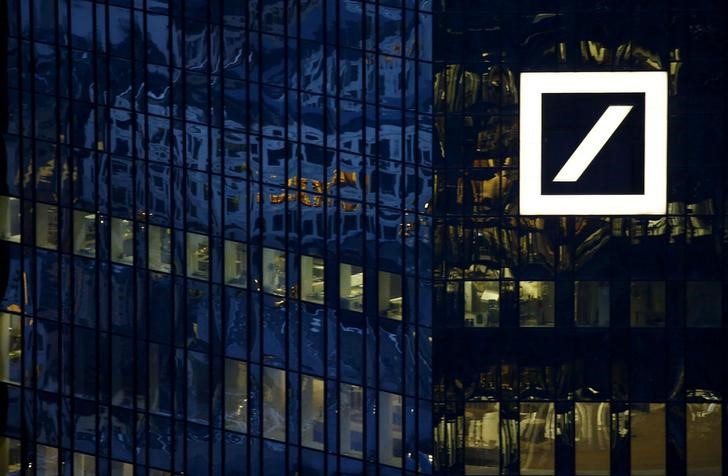By David Henry and Patrick Rucker
NEW YORK/WASHINGTON (Reuters) - U.S. bank subsidiaries of Deutsche Bank AG (DE:DBKGn) and Banco Santander SA (MC:SAN) yet again failed the Federal Reserve's stress test on Wednesday due to "broad and substantial weaknesses" in their capital planning processes.
The Fed gave Morgan Stanley (N:MS) only a conditional pass, saying that the bank also had to resolve weaknesses in its processes. Morgan Stanley has until Dec. 29 to resubmit its capital plan for approval.
The stress test results announced on Wednesday, known as CCAR, are particularly important because they determine how much capital big U.S. banks can put toward dividends, stock buy backs, acquisitions or investments.
The vast majority of participants passed with flying colours, including some that have had trouble in the past, like Citigroup Inc (N:C), Bank of America Corp (N:BAC) and Ally Financial Inc (N:ALLY). JPMorgan Chase & Co (N:JPM), Goldman Sachs Group Inc (N:GS) and Wells Fargo & Co (N:WFC) also passed.
(Click here to see how the banks performed: http://tmsnrt.rs/293nwd2)
Later on Wednesday, many of the banks that passed will release statements on dividend and stock buy back plans.
The CCAR results come after the Fed released results of a separate stress test last week, in which all 33 banks exceeded minimum regulatory capital requirements. But CCAR is a more nuanced examination, in which the Fed can fail banks for the way they go about capital planning as well as whether they technically pass a numerical threshold.
Banks had a few days to resubmit their capital plans last week if they felt that they were on shaky ground. M&T Bank Corp (N:MTB) was the only bank to do so.
While the stress tests are only hypothetical scenarios and the Fed's evaluations are subjective, the annual process is forcing banks to be better prepared for real life events. Big U.S. banks have more than doubled their capital since the financial crisis, adding more than $700 billion in common equity capital from the beginning of 2009, according to the Fed.
Market upheavals that followed a referendum last week in which United Kingdom voters decided to leave the European Union is a good example of how prepared U.S. banks are for turmoil, said Mike Alix, a bank consultant at PricewaterhouseCoopers and a former supervisory official at the Federal Reserve Bank of New York.
"The benefits of CCAR are an absolute rise in capital ratios and risk management," said Alix.
The Fed's checks on the quality of risk management and capital planning "are driving improvements in governance, infrastructure and controls" at the banks, he added.

At least one bank each year has failed to have its capital plan approved since the Fed began issuing pubic verdicts in 2012.